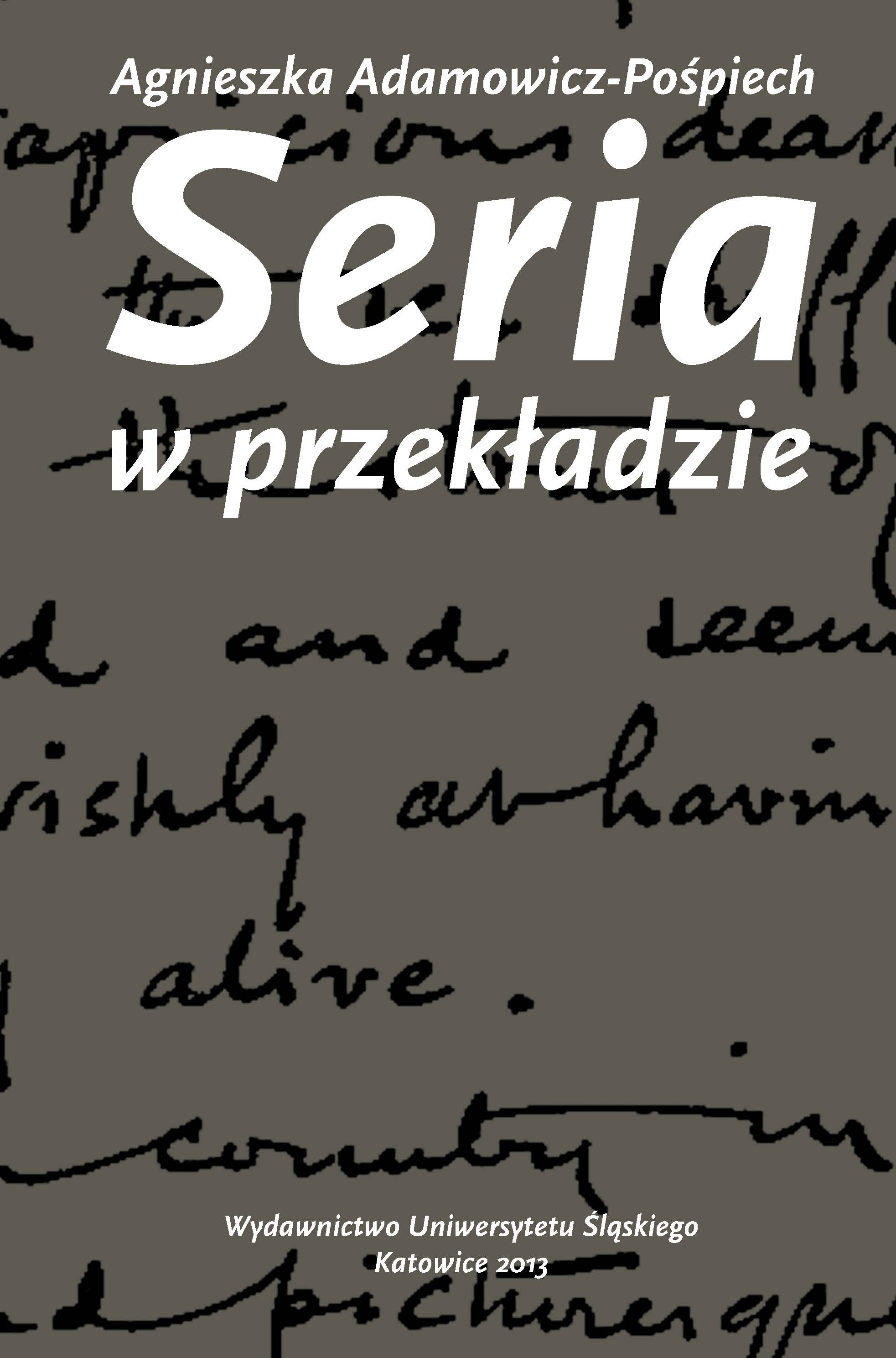Seria w przekładzie. Polskie warianty prozy Josepha Conrada
Series of Translations. Polish Versions of Joseph Conrad’s Prose
Author(s): Agnieszka Adamowicz-Pośpiech
Subject(s): Language and Literature Studies, Polish Literature
Published by: Wydawnictwo Uniwersytetu Śląskiego
Keywords: Joseph Conrad
Summary/Abstract: The present work analyzes one aspect of Translation Studies – a series of translationson the basis of Joseph Conrad’s prose. The first chapter is a theoretical analysis ofthe concept of ‘a series of translations’ in Polish as well as Western Translation Studies.In Western Translation Studies scholars use the term retranslation. This chapter delineatesthe evolution of the term ‘series of translations’ introduced by Edward Balcerzan andits development as well as modifications supplemented by Anna Legeżyńska and GrzegorzOjcewicz. As far as the concept of retranslation is concerned the works of AntoineBerman, Paul Bensimon, Yves Gambier and Lawrence Venuti are discussed. Moreoverin this chapter deconstruction approach to translation is explicated on the basis of theworks of Giles Deleuze and Jacques Derrida who undermine the central opposition ofthe original and copy.The second chapter is devoted to cultural implications of Joseph Conrad’s translations.The outline of Conrad’s reception in Poland was divided into several periods: YoungPoland, Interwar Period, War Years, Contemporary Times. The approach to Conrad’sworks and manner in which his books were interpreted and received in Poland dependedon the cultural, historical and political context. Analyzing Conrad’s translations andtheir impact on Polish culture one can detect the phenomena of “manipulation”, “refraction”and “re-writing”. According to different types of patronage Conrad’s works were tobe included in the canon of Polish literature (Stefan Żeromski’s patronage) so that theywould become “transparent”. The writer was enmeshed in ideological debates with Westerncapitalism in the socialist People’s Republic of Poland (PRL) and in consequencecrossed out from publishing and reading lists in Poland (socialist state authorities’patronage).Chapters III to V are analytical in nature. In each of those chapters the culturaland historical context was delineated (the views of British critics, the writers’ opinionsexpressed in private correspondence, last but not least the opinions of Conrad himselftriggered by the critical reception). Moreover the translators’ profiles were presentedas well as the cultural context in which the translated text was produced. Additionallyparatexts of translation (forewords, afterwords, footnotes, glossaries, translators’ pressinterviews) were commented upon. The analytical chapters concentrate on several majortranslatological issues. The third chapter is devoted to the retranslations of The Niggerof the “Narcissus” produced by Jan Lemański (1920) and Bronisław Zieliński (1961). Thetranslation issues that were chosen for this comparison comprise translation of dialectsand terminology. The fourth chapter consist in the analysis of Polish retranslations ofTyphoon by Jerzy Bohdan Rychliński (1926), Halina Carroll-Najder (1972) and MichałFilipczuk (2000). For this novella a crucial translatological problem was the semanticdominant used a noun not an adjective (dominanta semantyczna). The last chapterfocuses on intertextual chains on the basis of Polish retranslations of The Shadow-Lineproduced by Jadwiga Sienkiewiczówna (1925), Jan Józef Szczepański (1972) and EwaChruściel (2002).
- E-ISBN-13: 978-83-8012-218-5
- Print-ISBN-13: 978-83-226-2215-5
- Page Count: 386
- Publication Year: 2013
- Language: Polish
- eBook-PDF
- Table of Content
- Introduction

